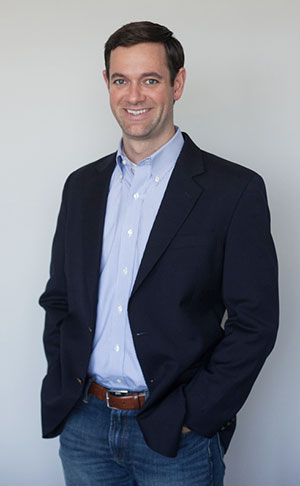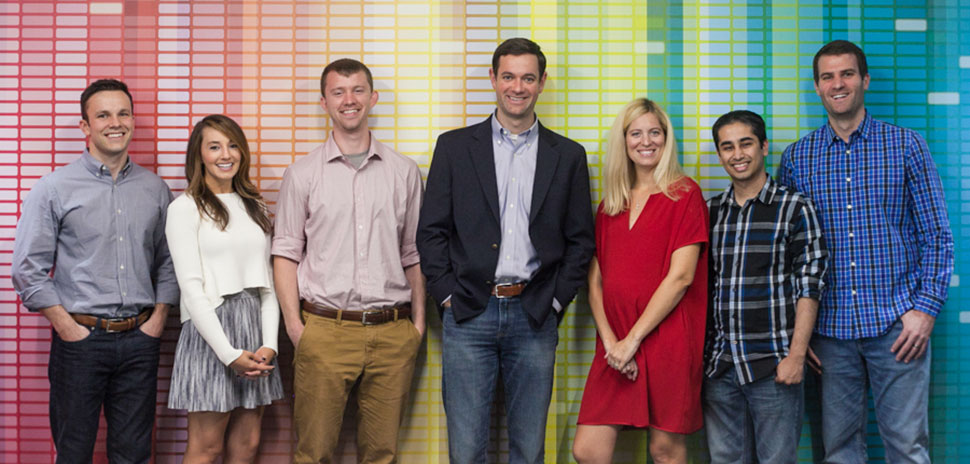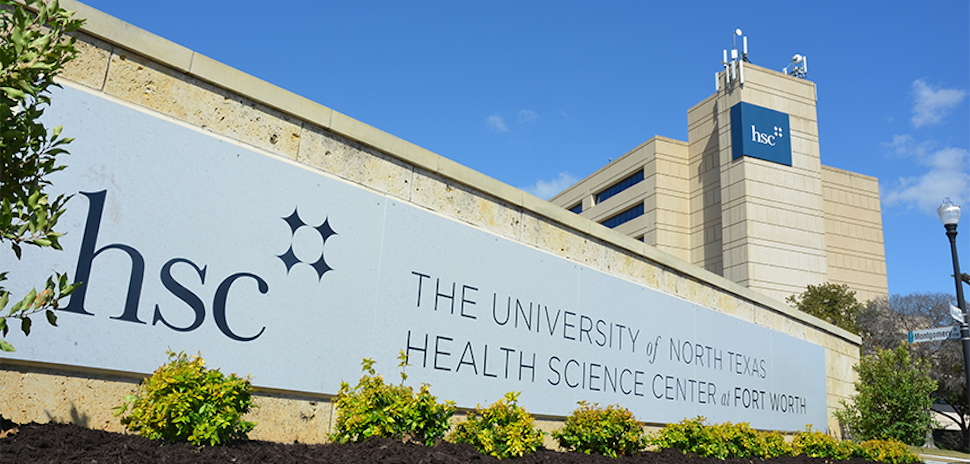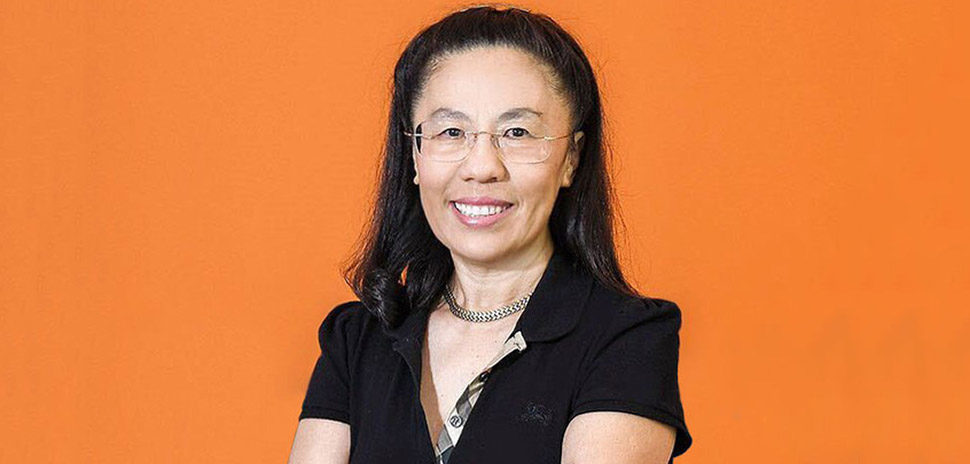While other health insurance disrupters have failed to meet projected profits or scaled back offerings, Take Command Health, which describes itself as the Turbo Tax of health insurance, has been celebrating growth milestones over the last four months.
The Dallas-based startup wrapped up a $1 million funding round in August, which it raised mostly from family offices and investors in Dallas. Among those investors are Sterling Private Capital, Swank Capital, and Julia Cheek, the CEO of at-home health diagnostics company, EverlyWell, which started in Dallas and now calls Austin home.

Take Command Health Founder and CEO Jack Hooper
The funding helped Take Command hire three full-time employees and six part-time staffers. Earlier this month, it also expanded beyond Texas to offer coverage in Florida, Georgia, Michigan, Wisconsin, and Arizona.
“We really look at our business model as fundamentally different from the traditional broker and that’s enabled us to weather the storms, the changes, and uncertainty much more effectively,” said Take Command Health founder and CEO Jack Hooper.
GIVING CONSUMERS THE TOOLS FOR DECISION-MAKING
Through an online platform, users can type in their personal information, health conditions, and doctor preferences to query a list of plans that fit their coverage needs.
Leigh Winans turned to Take Command after she left a job in education for part-time work that allowed her to spend more time with her 1-year-old daughter.
As a teacher, her coverage had been laid out for her and she never had to think too much about the options, she said. Like many others, she didn’t consider herself very educated on health insurance.
“It was a very overwhelming situation and they made it a lot easier to explain,” Winans said.
As an independent contractor, Winans’ husband had long been on his own plan, but through Take Command, she discovered she would spend less by also opting for separate plans for her and her daughter.
“I had never thought about splitting all of us up, but it ended up keeping our costs down and being the best option for us,” Winans said.
“It was a very overwhelming situation and they made it a lot easier to explain.”
Leigh Winans
Like other brokers, Take Command makes a profit off plans’ commissions, but the efficiency of a technology platform for enrollment versus a face-to-face broker meeting enables it to absorb the lower commissions, Hooper said.
Revenue has been tough to come by for health insurers in the individual market. According to McKinsey’s Center for U.S. Health System Reform, about a quarter of insurers made profits on the individual market in 2015.
This year, some health insurance carriers pulled their plans from the public market. Plan commissions have decreased or fallen flat.
Hooper expects his company will make $100,000 this year. It has about 800 customers now, but hopes to grow to at least 3,000 to 4,000 during the current open enrollment period.
And, while other brokers have cut back on plans that don’t yield revenue, Take Command has kept up its coverage options.
“We’ve been getting a lot of interest in Texas because we are offering these off-exchange plans that pay zero dollars in commission,” Hooper said.
TAKE COMMAND LAUNCHES MEMBERSHIP PLAN
It’s offsetting the commission losses through enrollment fees and a new membership plan, Hooper said.
With the membership plan, users can have perks such as medical bill negotiation and online doctor appointment scheduling as well as dental, vision, and prescription discounts. Take Command has also partnered with Teladoc to offer free telemedicine services.
“That gives a little room where, if we aren’t making commissions on plans, we aren’t selling you junk … we are selling you stuff that’s useful that’s going to actually help you save money,” Hooper said.
The premier membership plan costs $12 for individuals and $20 for families per a month. Some services such as the doctor scheduling and prescription discounts are free for any Take Command customer.
It has teamed up with RefillWise, a free pharmacy discount and loyalty rewards program with 1.2 million members nationwide.
“Like our partners at Take Command Health, we are trying to make it simple for people to save on their health care costs.”
Catherine Cuellar
With the discount card, customers can save an average of 40 percent on prescriptions, said Catherine Cuellar, director of partnerships for RefillWise.
“Like our partners at Take Command Health, we are trying to make it simple for people to save on their health care costs,” she said.
RefillWise card holders don’t have to be Take Command customers. The partnership is one of many Cuellar is working to strike with businesses and nonprofits to gain new members and in turn leverage deeper discounts.
“Since our program is free to join, we are trying to aggregate as many members as possible because the more members we have, the better the discounts we can negotiate on their behalf with all pharmacies,” Cuellar said.
BECOMING BETTER HEALTH INSURANCE CONSUMERS
As the fate of the Affordable Care Act remains uncertain, Hooper isn’t rattled.
Whatever changes might come down the pipeline, history has taught the leader of the Dallas-based startup it will not be immediate.
“We are hoping it will move back to more of a market-based, consumer-centric model, which all signs point to it will, but the nuts and bolts and how that works is going to be interesting to follow,” Hooper said.
“Our vision for the future is really empowering patients to know what they are getting, ask the right questions, and work with their doctor.”
Jack Hooper
For Take Command’s future, Hooper wants to evolve from only helping customers in the selection process once a year to giving people the resources to become better health insurance consumers.
“No matter what happens with Obamacare or the changes, to fundamentally fix the problem, we need people that are invested and that understand how their insurance works,” Hooper said.
He’s looking for Take Command to become more like the personal finance managing website, mint.com, by providing real-time advice for health insurance, and helping people track their expenses and claims.
“Our vision for the future is really empowering patients to know what they are getting, ask the right questions, and work with their doctor,” Hooper said. “Ultimately, I think that’s going to lead to better health care and then creating a real market where consumers are empowered.”
Delivering what’s new and next in Dallas-Fort Worth innovation, every day. Get the Dallas Innovates e-newsletter.






























